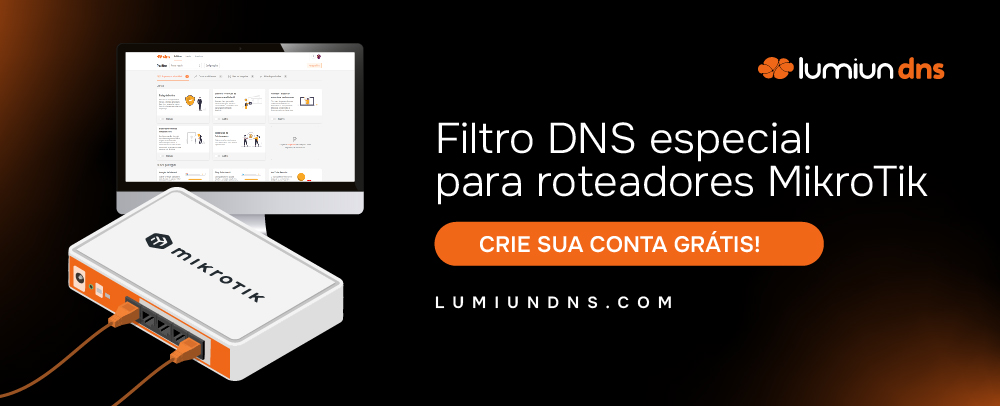Company Internet security can be established in many ways. Hardware, software, updates, team training and cloud solutions. Complete solutions that usually bring with them costs for implementation in the company's network.
As a solution to high costs and dependence on updates and features, Open Source security tools, or more commonly called open source, bring customization possibilities and also reducing spending.
In the next lines, you will see important information on the topic, and you can also know the main open source tools for cyber security in companies.
Free or Open Source?
To start talking about Open Source cyber security tools, we need to clarify the difference between open and free source software.
Something very common in cyber culture is confusing freedom with gratuity. The key point to understand that “Open Source” is not synonymous with “free” is time.
Any open source software requires study time and adequacy of the company's needs with the use of it. IT professionals in companies, especially small and medium, usually have so many tasks and brackets to be served, that their time turns out to be a simple explanation of the saying “time is money”.
Open Source yes solutions are free, but that does not mean that using them will cost nothing. It will cost time! Time that may, could generate better technology -dependent team results, for example.
Therefore, whenever you choose an open source solution and really closed code free, remember that you will need time to implement the right way for your need.
ADVANTAGES OF Open Source Tools
There are several advantages adjacent to the main ones about the use of open source tools in companies. But, more broadly, there are three:
- Low cost
- Possibility of customization and adaptation to the needs of the company
As we saw earlier, Open Source tools are free and need “only” IT professional time to adapt the solution to the purpose for which it was chosen, costing the professional's time in these adjustments. This is perhaps one of the main advantages of this type of tool.
Another advantage is that, unlike the paid tools, where there are “cast” plans and solutions that do not fit perfectly to the needs of the company, Open Source tools can be customized according to the IT professional's desire. For this same reason that there is a third advantage: In case of errors or problems, the IT professional can solve more agile without the need to contact or open calls with the tool developer.
However, there are also dangers and disadvantages that you will see below.
Disadvantages of open source software
Normally, open source software is developed with full focus on solving the problem, leaving the interface part a little aside. Without worrying about usability, these software is usually complex to install with difficult to handle interfaces.
As the code is made collaboratively, normally, with specific changes and adjustments according to the knowledge and desire of the responsible professional, some integrations with other platforms can become complicated. In some cases, this integration can generate financial costs and also the time of the responsible professional.
In addition, the absence of support can also make the software "freedom", a "prison" taking a long time around the tool. Whenever there is a failure, it is the IT professional of the company that should correct it, and, if this often occurs, may cause a lot of headache.
Main categories of Cyber Safety Tools Open Source
There are several contact points and security barriers on the Internet that can be implemented in companies. Although the scarcity of qualified cyber security professionals continues to impact IT industry, companies can still learn about open source tools for internet security. Among the main types are:
Network Traffic Visibility
Increasing the degree of visibility of network traffic is important. Some tools of this type track packages, observe and qualify them. In addition, in some cases, such as proxies, they can monitor a certain network traffic and change it, making network protection effective and instantaneous.
Vulnerabilities scanners
This category includes tools ranging from finding hosts on a network and determining which ports are open to finding software failures and incorrect settings on operating systems, applications and firmware.
Vulnerabilities tests
The tools of this category mimic a cyber attack in order to test the company's network protection. It is as if you create a cyber attack yourself to your business, to find out where it is the most fragile point and what should be improved.
In the next lines you will see some of the main open source cyber security tools to use by 2021.
Open source cyber security tools
There are several cybersecurity tools for available open source companies. Numerous are released each month, with various news and functions.
Below, we mention some of the main and most used. Each has specific features and functions that can adapt to your needs within the company, as you can see in the next lines.
Wireshark
With this tool it is possible to have visibility about network traffic, analyze and try to understand it. Known for integrating with hundreds of protocols and applications, this tool is basic and useful for those who need to quickly identify unknown protocols and detailed information about the company's network.
Open
Openvas is a vulnerability scanner that includes over 50,000 checks and allows the user to create their own custom checks. In addition, Openvas can look for vulnerabilities in operational technology, such as industrial control systems, for example.
Sqlmap
SQLMAP is a vulnerability test tool that specifically aims at database servers. It can explore password breakage, privilege burlage and also copy database tables.
It is normally used on database servers in a test environment to avoid exposure of confidential data.
Openiam4
One of the best -known open source identity management tools, Open AMI has user and group management, flexible authentication and automated provisioning. It can greatly help reduce the company's operating costs and improve identity audits through a centralized control plant.
What to do now?
As we can see throughout the text, open source cybersecurity tools are good alternatives for companies and IT professionals looking for low -cost solutions that can be personalized as the company's needs.
Special care should be taken with such tools to ensure that what should be a benefit is not a nuisance.
The first step is to find a qualified professional to implement solutions of this type, identifying which tool is most appropriate to maintain security on the company's internet.
Also, always remember that open source solutions do not have support and depend directly on the efforts and knowledge of the responsible professional, so they should be treated as a priority in IT tasks.
Complementary solutions can also support the Open Source, reducing the IT professional's working time and yet reducing operating costs and increasing productivity.
Firewall solutions with door block and also the management of internet use in the business environment, such as Lumiun, already remove a large workload from the back of the IT professional.
Unlike Open Source software, Lumun has support for installation and configuration by trained team and prepared for the diversities of the company's network system. In addition, corrections and improvements are made periodically, and the product takes an average of 20 minutes to be installed on the company's network.
If you want to know more how to use Lumiun in conjunction with an open source tool, or if you already use one, talk to one of our consultants , or do a free test and see how our solution works and meets your expectations and needs.
To the next!











